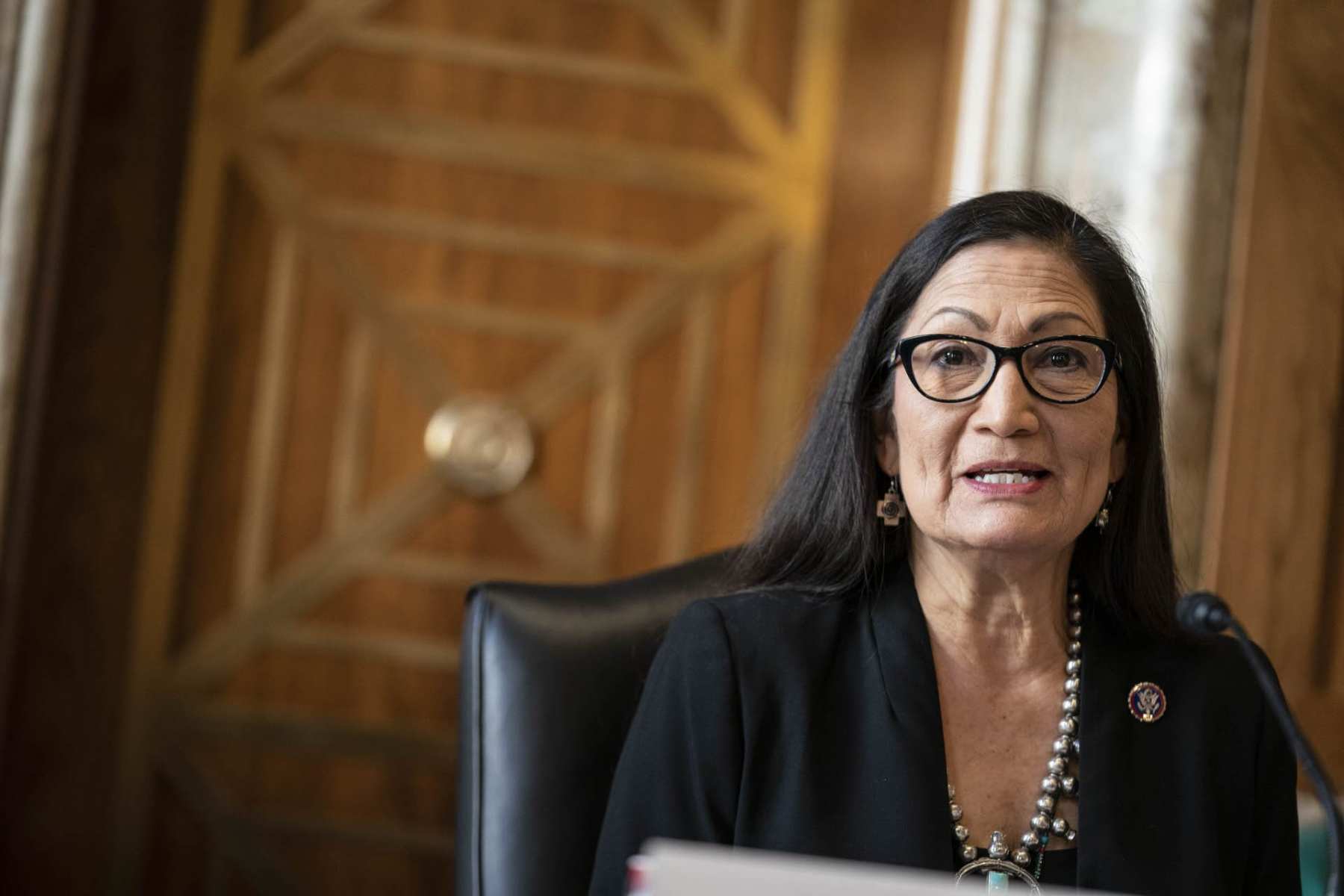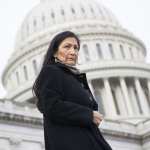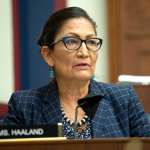The Senate on Monday confirmed Rep. Deb Haaland of New Mexico to head the Interior Department, marking the first time in U.S. history that a Native American will be Cabinet secretary of an executive branch agency.
In the 51-to-40 vote, four Republicans joined with Democrats to confirm the lawyer, climate activist and two-term House of Representatives lawmaker to the post overseeing more than 500 million acres of public land.
President Joe Biden has pledged to make his Cabinet secretaries — a president’s inner circle — the most diverse group in history, and Haaland’s confirmation furthers that goal. Of the 23 individuals Biden has nominated to his Cabinet, 17 have been confirmed thus far, including Haaland, with eight women among them.
Tribal leaders, environmental groups and progressive activists had pushed early on in Biden’s administration for a Native American to lead the Interior Department, given the agency also manages most federal programs related to more than 550 recognized tribes. Haaland emerged as a top choice.
With the 100-seat Senate evenly divided between Republicans and Democrats, and Vice President Kamala Harris as the tiebreaker, nominees cannot afford to lose the support of any Democratic senators if they do not have some Republican support.
Democratic Sen. Joe Manchin of West Virginia indicated early on he had some reservations about both Haaland and Neera Tanden, Biden’s pick to lead the Office of Management and Budget. His skepticism raised concerns that women of color faced steeper odds for confirmation in the chamber.
Manchin ultimately supported Haaland after she appeared before the Senate Committee on Energy and Natural Resources that he chairs. His opposition to Tanden, however, helped derail her confirmation. She is thus far the only nominee that the White House has had to withdraw. Manchin, along with some Republicans, said tweets sent by the leader of the Center for American Progress, a liberal think tank, might make it difficult for her to negotiate with lawmakers. She would have been the first woman of color and South Asian American in the role.
When Haaland appeared before the Senate energy panel, she faced questions from Manchin, and committee Republicans, about progressive policy stances that included her support for the Green New Deal and her opposition to fracking. Manchin ultimately said he would support Haaland despite their differences because both parties needed to be “committed to a new era of bipartisanship.”
Haaland said repeatedly in the panel hearings that if confirmed she would be implementing not her own agenda, but Biden’s, which includes a moratorium on new permits for oil and gas drilling on public lands but does not ban fracking outright.
While Haaland hails from the progressive wing of the Democratic Party — she co-chaired Sen. Elizabeth Warren’s 2020 presidential campaign — she introduced more bills that had bipartisan sponsorship during her first year than any other first-term representative.
The Energy and Natural Resources Committee ultimately voted 11 to 9 to send Haaland to the full Senate for confirmation. Republican Sen. Lisa Murkowski of Alaska joined the Democrats on the panel. Alaska Republican Rep. Don Young, who is not on the panel, had introduced Haaland in a show of support. Roughly a fifth of Alaska’s population is indigenous, and more than half of the state’s land managed by the Interior Department.
The Interior Department employs about 70,000 people to oversee more than 500 million acres of public land, including 423 national park sites. It contains the Bureau of Indian Affairs, which administers most programs related to more than 550 federally recognized tribes.
In the 2018 midterm elections, Haaland was elected to represent New Mexico’s 1st Congressional District. She was one of two Native American women elected that year who were the first to serve. She said when sworn in that “Congress has never heard a voice like mine.”
At her confirmation hearings for the Interior post, Haaland said: “the historic nature of my confirmation is not lost on me, but, I will say, it is not about me. Rather, I hope this nomination would be an inspiration for Americans, moving forward together, as one nation, and creating opportunities for all of us.”






